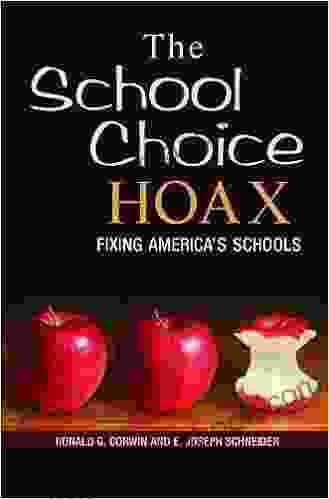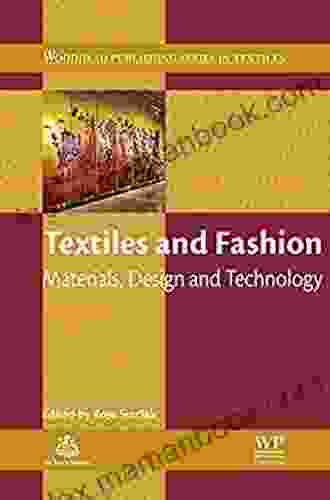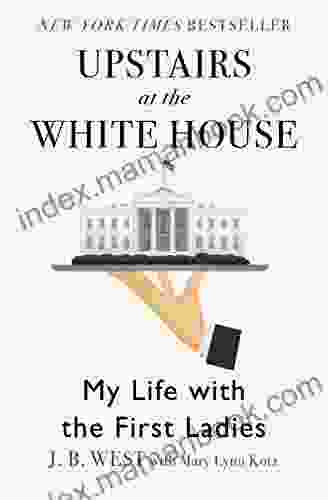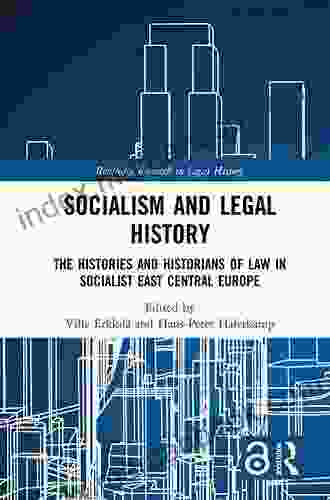The School Choice Hoax: Fixing America's Schools

4.1 out of 5
| Language | : | English |
| File size | : | 2739 KB |
| Text-to-Speech | : | Enabled |
| Screen Reader | : | Supported |
| Print length | : | 256 pages |
School choice is a controversial topic in American education. Proponents argue that it gives parents more options and improves the quality of education for all students. Opponents argue that it undermines public education and exacerbates inequality. The debate has been going on for decades, and there is no easy answer. But it is an important debate to have, because the future of our education system depends on it.
What is school choice?
School choice is a broad term that refers to any policy that gives parents more options for where to send their children to school. This includes vouchers, charter schools, magnet schools, and homeschooling.
School choice policies have become increasingly popular in recent years. According to the National School Choice Foundation, more than 5 million students were enrolled in school choice programs in the 2018-19 school year. This is a significant increase from just a few years ago.
The arguments for school choice
Proponents of school choice argue that it gives parents more options and improves the quality of education for all students. They point to studies that show that students who attend school choice programs are more likely to graduate from high school, attend college, and earn higher incomes.
School choice advocates also argue that it promotes competition among schools. This, they say, leads to better teaching and learning. When schools have to compete for students, they are more likely to improve their quality.
The arguments against school choice
Opponents of school choice argue that it undermines public education and exacerbates inequality. They point to studies that show that school choice programs can lead to increased segregation and a decline in the quality of public schools.
Opponents of school choice also argue that it is unfair to give parents who can afford it more options for where to send their children to school. They say that this creates a two-tiered system of education, with the wealthy having access to better schools than the poor.
The evidence on school choice
The evidence on school choice is mixed. Some studies have shown that school choice programs can improve student outcomes, while others have shown that they can have negative consequences.
A 2020 study by the Center on Education Policy found that students who attended charter schools in New York City were more likely to graduate from high school and attend college than students who attended traditional public schools. However, the study also found that charter schools were more likely to serve students from wealthier families.
A 2019 study by the National Bureau of Economic Research found that students who used vouchers to attend private schools in Louisiana were more likely to attend college and earn higher incomes than students who attended public schools. However, the study also found that the voucher program led to increased segregation.
The future of school choice
The future of school choice is uncertain. The debate over school choice is likely to continue for many years to come. There is no easy answer to the question of whether or not school choice is a good thing. But it is an important debate to have, because the future of our education system depends on it.
School choice is a complex issue with no easy answers. There are valid arguments on both sides of the debate. Ultimately, the decision of whether or not to support school choice is a personal one.
4.1 out of 5
| Language | : | English |
| File size | : | 2739 KB |
| Text-to-Speech | : | Enabled |
| Screen Reader | : | Supported |
| Print length | : | 256 pages |
Do you want to contribute by writing guest posts on this blog?
Please contact us and send us a resume of previous articles that you have written.
 Top Book
Top Book Novel
Novel Fiction
Fiction Nonfiction
Nonfiction Literature
Literature Paperback
Paperback Hardcover
Hardcover E-book
E-book Audiobook
Audiobook Bestseller
Bestseller Classic
Classic Mystery
Mystery Thriller
Thriller Romance
Romance Fantasy
Fantasy Science Fiction
Science Fiction Biography
Biography Memoir
Memoir Autobiography
Autobiography Poetry
Poetry Drama
Drama Historical Fiction
Historical Fiction Self-help
Self-help Young Adult
Young Adult Childrens Books
Childrens Books Graphic Novel
Graphic Novel Anthology
Anthology Series
Series Encyclopedia
Encyclopedia Reference
Reference Guidebook
Guidebook Textbook
Textbook Workbook
Workbook Journal
Journal Diary
Diary Manuscript
Manuscript Folio
Folio Pulp Fiction
Pulp Fiction Short Stories
Short Stories Fairy Tales
Fairy Tales Fables
Fables Mythology
Mythology Philosophy
Philosophy Religion
Religion Spirituality
Spirituality Essays
Essays Critique
Critique Commentary
Commentary Glossary
Glossary Bibliography
Bibliography Index
Index Table of Contents
Table of Contents Preface
Preface Introduction
Introduction Foreword
Foreword Afterword
Afterword Appendices
Appendices Annotations
Annotations Footnotes
Footnotes Epilogue
Epilogue Prologue
Prologue Jennifer Reeser
Jennifer Reeser Kenneth J Fasching Varner
Kenneth J Fasching Varner Drew Hunt
Drew Hunt Dev Sharma
Dev Sharma Jesse Cole
Jesse Cole T Livingston
T Livingston Lucinda Berry
Lucinda Berry Julia Kellogg Henry
Julia Kellogg Henry Vandana Verma
Vandana Verma Jacqueline Rhoads
Jacqueline Rhoads A Zavarelli
A Zavarelli Jay M Feinman
Jay M Feinman Barbara J Suwyn
Barbara J Suwyn Dimitrios Kravvaris
Dimitrios Kravvaris Anthony Bourdain
Anthony Bourdain D T Adams
D T Adams Aaron Galvin
Aaron Galvin Anshuman Patro
Anshuman Patro Lauren Vento
Lauren Vento Aaron Nannini
Aaron Nannini
Light bulbAdvertise smarter! Our strategic ad space ensures maximum exposure. Reserve your spot today!

 F. Scott FitzgeraldThe Thomas Mason Trilogy: A Captivating Journey into the War Against the...
F. Scott FitzgeraldThe Thomas Mason Trilogy: A Captivating Journey into the War Against the... Oscar BellFollow ·15k
Oscar BellFollow ·15k Keith CoxFollow ·12k
Keith CoxFollow ·12k Joel MitchellFollow ·5.7k
Joel MitchellFollow ·5.7k Allen GinsbergFollow ·6.2k
Allen GinsbergFollow ·6.2k Andy ColeFollow ·9.6k
Andy ColeFollow ·9.6k Eric HayesFollow ·12.3k
Eric HayesFollow ·12.3k Isaiah PowellFollow ·10.3k
Isaiah PowellFollow ·10.3k Daniel KnightFollow ·2.8k
Daniel KnightFollow ·2.8k

 Dwight Bell
Dwight BellSlightly Higher Interval Training For 5k Runners: A...
Interval training has become an...

 Jordan Blair
Jordan BlairLazarillo de Tormes and the Swindler: A Tale of Deception...
The story of Lazarillo de...
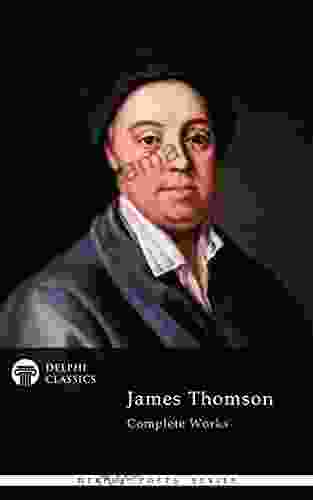
 Grayson Bell
Grayson BellDelphi Complete Works Of James Thomson Illustrated Delphi...
: Unveiling the...
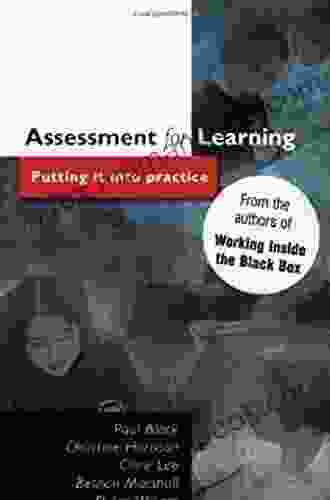
 Cooper Bell
Cooper BellAssessment For Learning (UK Higher Education OUP...
Assessment plays a crucial role in higher...

 Luke Blair
Luke BlairThis Is How Knew: A Comprehensive Guide to Unlocking Your...
Have you ever wondered if...

 Forrest Blair
Forrest BlairExploring the Kingdom of the Blind: A Deep Dive into an...
The Kingdom of the...
4.1 out of 5
| Language | : | English |
| File size | : | 2739 KB |
| Text-to-Speech | : | Enabled |
| Screen Reader | : | Supported |
| Print length | : | 256 pages |


